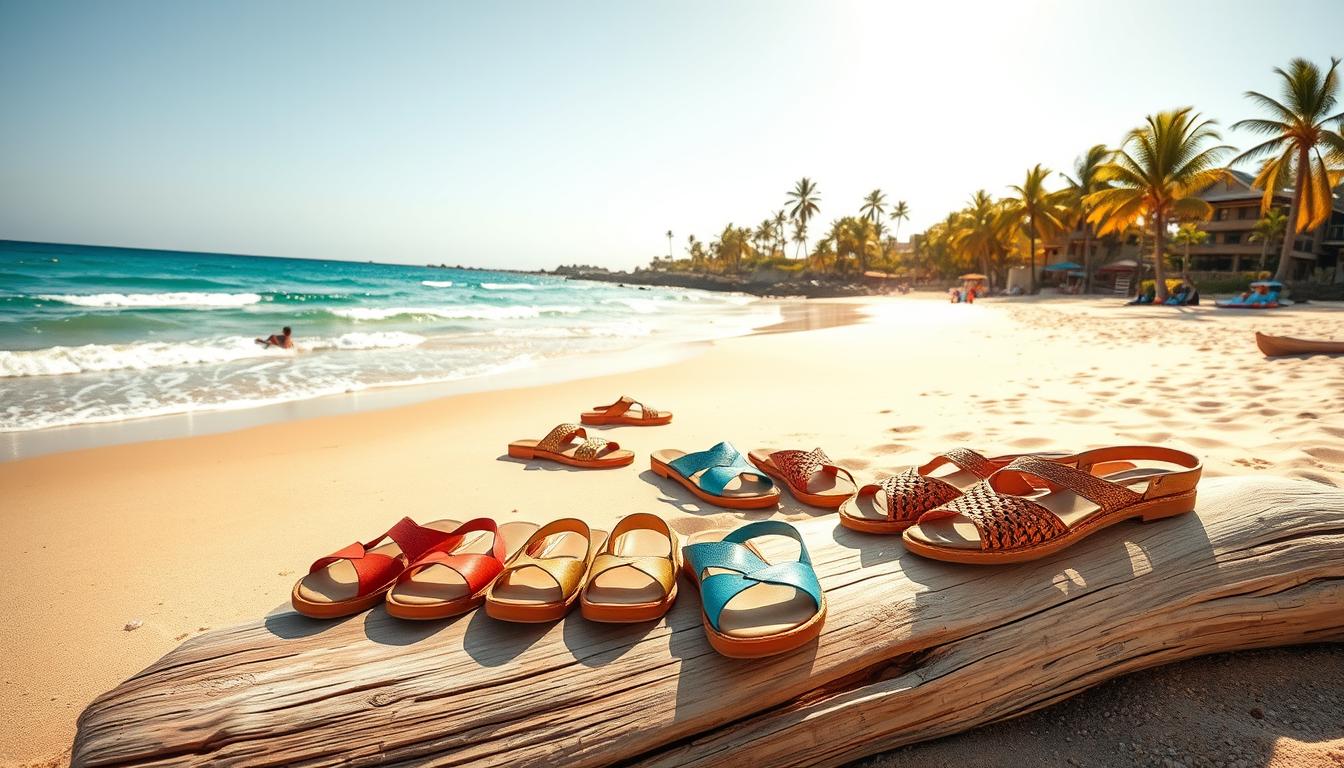Affiliate Disclosure: Some of the links in this post are affiliate links, which means I may earn a small commission if you make a purchase through those links. This comes at no extra cost to you. Thank you for your support!
For travelers who crave high-quality images without the burden of bulky equipment, the Sony Alpha7C II presents an intriguing option. This compact full-frame camera is designed to balance professional capability with travel-friendly design.
With its improved IBIS, offering an additional 1.5 stops of effective stabilization, and enhanced autofocus powered by a dedicated AI processor, this camera is well-suited for capturing a wide range of travel photography scenarios. Whether you’re shooting in low-light conditions or fast-moving street scenes, the Alpha7C II promises to deliver.
But is it the right choice for your travels? Let’s explore its features and size to determine if it strikes the perfect balance for your photography needs on the go.
Key Takeaways
- The Sony Alpha7C II offers improved image stabilization and autofocus.
- Its compact size makes it ideal for travelers.
- The camera features a full-frame sensor for high-quality images.
- Enhanced AI processing improves autofocus performance.
- The camera is designed to be travel-friendly without compromising on professional features.
The Sony Alpha 7C II: A Compact Full-Frame Option
The Sony Alpha7C II represents a significant breakthrough in camera technology, offering full-frame capabilities in a remarkably compact body. This camera is designed for travelers who value both image quality and portability.
Design and Build Quality
The Alpha7C II boasts a premium build quality that balances lightweight construction with the durability needed for travel. Its weather-sealed design protects against unexpected elements, making it a reliable choice for capturing moments in various conditions. The camera’s ergonomics have been thoughtfully designed to maintain comfortable handling, even during extended shooting sessions.
Size and Weight Considerations
One of the standout features of the Sony Alpha7C II is its ability to fit a full-frame sensor into a body significantly smaller than traditional professional cameras. This makes it an appealing option for travelers who prioritize portability without compromising on image quality. When paired with a smaller lens, the overall system becomes even more compact and lighter, making it easier to carry around.
However, it’s essential to consider the compromises made to achieve this compact design. The camera lacks a second card slot, has a smaller EVF with less magnification, and a lower resolution rear screen. Despite these limitations, many users find the trade-offs acceptable for the size and weight advantages. The practical implications of these compromises will depend on your specific needs and workflow.
Key Features for Travel Photography
The Sony Alpha7C II is a travel photographer’s dream, offering a range of innovative features that simplify capturing life’s precious moments. Whether you’re wandering through bustling markets or standing atop a serene mountain peak, this camera is designed to help you capture the beauty around you.
Improved Image Stabilization System
The a7C II boasts an enhanced 5-axis in-body image stabilization system, providing up to 7 stops of compensation. This feature is particularly useful for travel photographers who often find themselves shooting in challenging lighting conditions, from dimly lit interiors to evening cityscapes. With this level of stabilization, you can confidently shoot handheld, even in low-light environments.

Enhanced Autofocus Capabilities
The camera’s AI-powered autofocus system is another standout feature, capable of recognizing and tracking subjects with remarkable precision. This ensures that you capture fleeting moments in markets, festivals, and other dynamic travel environments. The advanced face and eye detection capabilities work across different cultures and ethnicities, maintaining accurate focus regardless of where your travels take you.
- Capture sharp images in challenging lighting conditions thanks to the improved image stabilization system.
- Benefit from the AI-powered autofocus that tracks subjects with precision.
- Enjoy accurate face and eye detection across diverse cultures and environments.
Battery Life and Storage Options
Practical performance is also a key consideration for travel photographers. The Sony Alpha7C II offers a reliable battery life that allows for full-day shooting excursions without the need for multiple spares. The power management system optimizes time between charges, ensuring you’re always ready to capture the next great shot. Additionally, the camera supports various card options, providing flexibility for storing your images.
Features like the bulb timer simplify long-exposure photography, allowing you to capture star trails, light painting, and nighttime landscapes without additional equipment. This level of versatility makes the Sony Alpha7C II an invaluable tool for travelers seeking to expand their creative horizons.
Performance in Travel Scenarios
The Sony Alpha7C II camera excels in various travel scenarios, thanks to its advanced features and compact design. Whether you’re capturing the vibrant streets of a bustling city or the serene landscapes of a remote destination, this camera is designed to deliver outstanding results.

Street and Cultural Photography
The camera’s discreet profile and silent shooting capabilities make it ideal for capturing authentic street scenes and cultural moments without drawing attention or disrupting the natural flow of life. You can pair it with compact lenses like the Sony 28-60mm for discreet street photography, or with faster primes for specific needs. As one reviewer noted, “The a7C II’s improved autofocus system can lock on subjects from odd angles, making it effective for street photography.”
When exploring new destinations, the ability to capture candid moments is crucial. The Sony Alpha7C II’s advanced autofocus system and fast lens capabilities enable you to freeze the action and preserve the authenticity of the scene.
Low-Light and Night Photography
The enhanced IBIS (In-Body Image Stabilization) of the Sony Alpha7C II allows for slower shutter speeds, making it beneficial for low-light situations. This feature is particularly useful when documenting evening festivals, illuminated monuments, or intimate indoor settings. You can achieve impressive results without compromising on image quality or requiring a tripod.
The camera’s impressive low-light performance is further enhanced by its ability to preserve details in both shadows and highlights, essential when photographing high-contrast scenes.
Landscape and Architectural Shots
When it comes to capturing landscapes and architectural shots, the Sony Alpha7C II’s dynamic range capabilities are invaluable. The camera faithfully reproduces the vibrant colors and textures of the scene, whether you’re shooting sunlit ancient architecture or dramatic landscapes at golden hour.
By choosing the right lens, such as a wide-angle lens, you can enhance your shooting experience and capture the grandeur of the scene. The Sony Alpha7C II’s versatile lens options make it an excellent choice for travel photography.
Comparing the Sony Alpha 7C II to Alternatives
As travelers weigh their camera options, the Sony Alpha7C II is a notable choice, offering a unique blend of features that set it apart from other cameras. When evaluating cameras for travel, several factors come into play, including size, weight, lens compatibility, and overall performance.
Sony Alpha7C II vs. Sony Alpha7IV
The Sony Alpha7C II and Sony Alpha7IV are both powerful cameras, but they cater to different needs. The Alpha7C II is designed with travelers in mind, offering a compact full-frame solution with improved IBIS and autofocus capabilities. In contrast, the Alpha7IV, while more ergonomic, is larger and heavier.
| Feature | Sony Alpha7C II | Sony Alpha7IV |
|---|---|---|
| IBIS | Improved | Standard |
| Autofocus | Enhanced | Advanced |
| Size | Compact | Larger |
| Weight | Lightweight | Heavier |
Full-Frame vs. APSC for Travel
When deciding between full-frame and APSC cameras for travel, several factors come into play. Full-frame cameras like the Sony Alpha7C II offer superior image quality, especially in low light, and a wider dynamic range. APSC cameras, while smaller and potentially more cost-effective, may not match the image quality of their full-frame counterparts.
For travelers, the choice between full-frame and APSC often comes down to lens availability and personal preference. Pairing the Sony Alpha7C II with compact lenses like the Sigma 50mm f/2 DN or Tamron 28-75mm f/2.8 G2 can enhance its portability.

Conclusion: Is the Sony Alpha 7C II Worth It for Travelers?
With its blend of advanced features and compact size, the Sony Alpha7C II is poised to be a traveler’s trusted companion. This camera excels in performance areas that matter most for travelers, including improved autofocus, enhanced image stabilization, and features like the bulb timer.
For optimal portability, pairing the Sony Alpha7C II with compact lenses is recommended. Travelers who value high-quality images without the bulk will find this camera system particularly appealing. Whether you’re an urban explorer, landscape enthusiast, or cultural documentarian, the Sony Alpha7C II offers the image quality and versatility needed to capture meaningful moments across cultures and landscapes.
The right camera can significantly enhance the travel experience, allowing for more immersive and less obtrusive documentation. By considering your specific photography needs and travel style, you can determine if the Sony Alpha7C II is the ideal choice for your next adventure. Its balance of technical capabilities and practical considerations makes it a compelling option for those seeking to elevate their travel photography.
FAQ
What are the key benefits of the camera’s compact full-frame design for travelers?
How does the image stabilization system enhance travel photography?
Can the camera handle various travel photography scenarios, such as street and cultural photography?
How does the camera’s autofocus capability perform in different lighting conditions?
What storage options are available for the camera, and how long does the battery last?
Is the camera’s full-frame sensor better suited for travel photography compared to APSC?
How does the camera’s size and weight compare to other full-frame options?
Can the camera be used for landscape and architectural photography?
Discover more from Adventure Seeker Quests
Subscribe to get the latest posts sent to your email.



